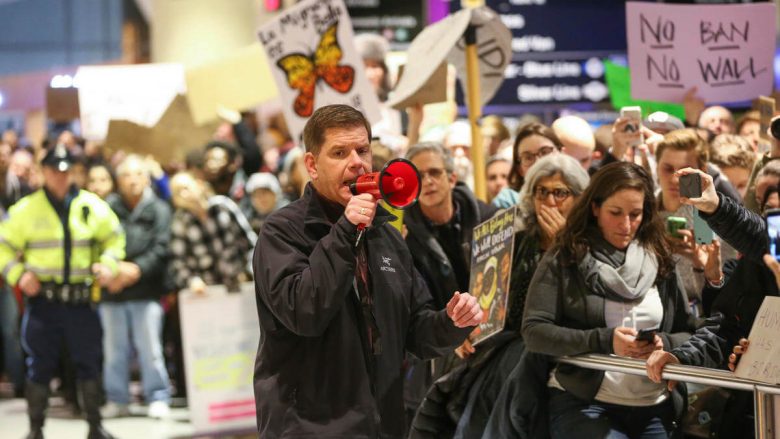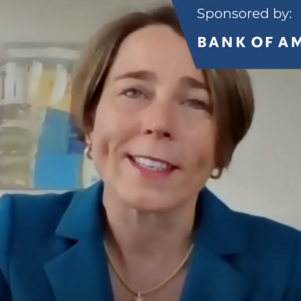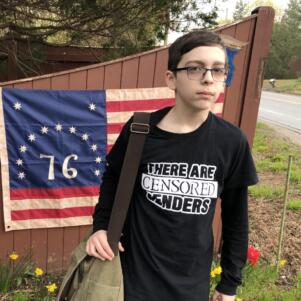Boston Federal Judge To ACLU, State: Travel Ban Deadline Will Be Upheld
By Evan Lips | February 3, 2017, 18:46 EST
 Boston Mayor Marty Walsh was one of several local politicians who joined protesters last weekend at Logan Airport to rally against a White House executive order restricting travel from seven Muslim-majority nations. (AP Photo)
Boston Mayor Marty Walsh was one of several local politicians who joined protesters last weekend at Logan Airport to rally against a White House executive order restricting travel from seven Muslim-majority nations. (AP Photo) BOSTON — U.S. District Court Judge Nathaniel Gorton spent part of his Friday listening to passionate pleas from opponents of a presidential executive order halting travel to the United States from seven predominately Muslim nations, but later announced that the temporary reprieve won by the American Civil Liberties Union last weekend will not extend beyond Sunday’s deadline.
Reports began trickling out of Gorton’s courtroom by mid-Friday afternoon, and the latest information suggests that the crux of the case lay in whether President Donald Trump’s travel restriction order factually constitutes a “Muslim ban” — a claim Gorton wound up tossing aside.
The ACLU’s stay on Trump’s executive order expires Sunday morning. The original lawsuit was filed last weekend by the ACLU of Massachusetts on behalf of two Iranian nationals, both of whom work as college professors in Massachusetts, who had been detained last Saturday along with a handful of other travelers. Trump’s January 27 order affects Iran, Iraq, Libya, Syria, Sudan, Somalia, and Yemen.
Hours later, however, on the other side of the country, a different federal judge in Seattle issued a sweeping ruling that deemed Trump’s order unconstitutional. U.S District Court Judge James Robart, according to Politico, ruled in favor of another lawsuit filed by the attorneys general of Washington and Minnesota, effectively wiping out Trump’s order nationally, the website reported.
Robart was appointed to the federal bench by former President George W. Bush.
Meanwhile, in Boston, Gorton in his 21-page order acknowledged the ACLU’s argument of religious discrimination — the organization had previously singled out portions of Trump’s policies that prioritized certain religions. The ACLU argued that the policies discriminated against religious freedoms. Gorton — also a Bush appointee — pointed out however that the Trump administration’s policy to “prioritize applicants on the basis of religious-based persecution provided that the religion of the individual is a minority religion in the individual’s country of nationality.”
Critics have argued that this policy discriminates against Muslims in favor of Christians, as the seven countries named in the order are overwhelmingly populated by Muslims.
“Plaintiffs contend that the EO discriminates on the basis of religion and was designed to exclude Muslims from the United States,” Gorton noted. “They further allege that it singles out citizens of seven different countries.
“At oral argument, plaintiffs relied on ‘astonishing evidence of intent’ from President Trump which, in their view, demonstrates that EO was ‘substantially motivated by improper animus’.”
On Wednesday the Trump administration relaxed one aspect of the ban when White House attorneys announced that it would no longer cover legal permanent residents who hold a Green Card — an interpretation that applies to the plaintiffs in the ACLU’s original lawsuit. According to recent court filings submitted by the Department of Justice, “most of the Plaintiffs are LPRs —whose claims are now entirely moot because they are not covered by the order.”
The addition of Oxfam International as plaintiffs, a non-governmental organization that specializes in fighting poverty, adds a new wrinkle to the case. Oxfam in its filings claims the executive order keeps them from bringing personnel into the United States from overseas.
The Department of Justice, however, argued in its response that Oxfam has yet to identify any one person residing in any of the affected countries who is slated to travel to the United States within the current month.
“Even if there were such a person, there is no reason that the individuals Oxfam wishes to bring to the United States for speeches and meetings — or even briefings — cannot appear via videoconference or telephone,” the government’s filing claims.
Gorton’s ruling essentially nullifies Oxfam’s arguments — for now.
Gorton asserted that the language in the section of Trump’s order that was most hotly disputed “is neutral with respect to religion.”
According to the Boston Herald, Gorton on Friday challenged ACLU attorneys inside his courtroom to prove that Muslims have been singled out by the order. The ACLU, in response, has pointed to President Donald Trump’s own direct quotes taken from his campaign.
“Plaintiffs submit in their amended complaint that Section 5 favors Muslims over Christians, in violation of the Establishment Clause,” Gorton wrote. “The provisions of Section 5, however, could be invoked to give preferred refugee status to a Muslim individual in a country that is predominately Christian.
“Nothing in Section 5 compels a finding that Christians are preferred to any other group.”
Gorton went on to write that “there is no constitutionally protected interest in either obtaining or continuing to possess a visa.”
Earlier this week, Attorney General Maura Healey also sued the Department of Justice on behalf of the commonwealth and the state’s university system, claiming that the order was unconstitutional — a point that has now been at least temporarily squashed by Gorton’s ruling.
Gorton was, however, sympathetic to those affected by the order.
“The harm of being forced to choose between visiting loved ones, participating in a prestigious doctoral program or founding a business, on the one hand, and staying in this country out of fear of being denied re-entry is painful to contemplate,” Gorton wrote. “Oxfam faces some less-lifesize challenges but they are important nevertheless.
Gorton went on to note that “there are considerations on both sides with respect to a balancing of the hardships” and pointed out that, “on the one hand, implementing an effective immigration regime that ensures the safety of all Americans is undoubtedly difficult — on the other hand, the hardship to the professional and personal lives of the individual plaintiffs and to the operation of the Oxfam worldwide organization is palpable.”
Gorton also weighed the potential security risks Trump’s order seeks to address with the country’s “rich” history of immigration.
Ultimately, however, Gorton determined that the plaintiffs’ arguments fell flat.
“Because plaintiffs have not demonstrated that they are likely to succeed on the merits of any of their claims, an extension of the restraining order at the present time is not warranted,” Gorton ruled.
On Friday, Governor Charlie Baker sent a letter to John Kelley, secretary of the Department of Homeland Security, in an apparent effort to express his opposition to Trump’s temporary 120-day order. Baker, who praised Healey for adding the state to the ACLU’s lawsuit and has repeatedly stressed that Massachusetts must remain a “global” community, wrote that the state’s ability to “attract the best and brightest minds from around the world” will be negatively affected by Trump’s order.
Baker offered several suggestions and defended the H 1-B visa and other entry programs as “valuable tools that should be maintained to support the American companies who abide by the rules.”
Baker later pointed out that the legality of the order is “currently before the federal courts and will ultimately be decided in that forum.”
It remains to be seen whether Baker’s lobbying will affect White House policy, as Baker has been noticeably opposed to both Trump’s campaign and his presidency.
The Trump White House
Read Judge Gorton’s order:
2017 2 3 Gorton Decision by Evan on Scribd
Read the Department of Justice’s opposition filing to extending the ACLU’s restraining order:
2017-02-02 Aclu v Usdoj – Opposition filing by Evan on Scribd











